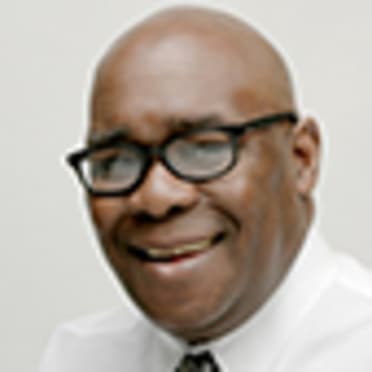Elston: From Negro Leagues to Yanks icon
A version of this story was originally published in November 2020.
Elston Howard was more than just the first African American to play with the Yankees. He was an amazing catcher and an even better person off the field, according to people who knew him.
Howard -- born on this date in 1929 -- played professional baseball from the late 1940s to the late '60s. Segregation was strong during that period, but Howard never let the racial tensions of the day get the best of him. Take, for example, the time Howard boarded the Yankees' bus in the late 1950s. According to former teammate Bobby Richardson, Mickey Mantle jokingly told Howard to get to the back of the bus. Howard laughed and said, “No, I’m going to sit by you.”
The entire team cheered.
“Mantle meant to have it that way. Elston was accepted by the team, and his response was even better,” Richardson said. “He had more friends on the Yankees than probably anyone on the ballclub. He was that kind of guy.”
On the field, Howard took advantage of his time with the Yankees. Not only was he in the postseason 10 times with the Bronx Bombers, Howard helped them win four World Series titles, and in 1963, he was the first Black player to win the American League MVP Award. That year, with Mantle and Roger Maris injured for most of the season, Howard was New York’s best offensive weapon, leading the team with a 5.2 WAR and hitting a career-high 28 home runs before the Yankees were swept by the Dodgers in the World Series. Howard is also the guy who introduced the baseball doughnut -- the circular weight that batters use for practice swings in the on-deck circle.
Howard’s leadership skills behind the plate didn’t go unnoticed, with his pitchers relying on his guidance on a nightly basis. Hall of Famer Whitey Ford never complained about Howard’s game calling. In fact, he had his best season in 1961, with Howard behind the dish. Ford won his only Cy Young Award (there was only one award for both the AL and NL From 1956-66) after notching a career-high 25 victories that year.
“He had a lot of talent,” Richardson said of Howard. “He was a very humble guy. He was team-oriented. I can’t say too many nicer things about him. He was a wonderful teammate.”
Long before Howard made his mark with the Yankees, he'd already made a name for himself with the Kansas City Monarchs. It was the legendary Buck O’Neil who saw the potential in the right-handed-hitting Howard, and it was O’Neil who convinced Howard to forgo a college football scholarship to play for the Monarchs.
Howard didn’t last long in the Negro Leagues, however, playing just one season in 1948 for Kansas City, according to Seamheads.com's Negro Leagues Database, hitting .248 in 26 games while playing left field and first base. Howard didn’t become a catcher until he joined the Yankees' system in 1950.
“Buck had a sensational eye for talent. Elston was another one of those great finds that he had,” said Negro Leagues Baseball Museum president Bob Kendrick. “Howard goes to Kansas City and his roommate was Ernie Banks. They stayed at the Street Hotel, which was right down the corner [from] where the museum operates now. Ernie told me that he and Elston both had realistic dreams that they could follow Jackie Robinson to the big leagues.”
Those realistic dreams came true eight years after Robinson’s debut, on April 14, 1955, when Howard played his first game for the Yankees. After 12-plus years with New York, the Red Sox picked up Howard in early August 1967, and it paid off as they went on to the World Series before losing to the Cardinals in seven games.
Howard was a quiet influence on young players on that team, such as Reggie Smith and George Scott. Howard also brought the Yankees' winning spirit to a Red Sox team in need of it. It was Howard’s words, for example, that helped Smith get over a slump and become a major contributor to the Red Sox winning the pennant.
“When he spoke, you listened,” Smith said. “[When I was struggling during the season], I didn’t want to go out and eat. Elston left and came back and he brought me sardines, crackers and an orange. I’ll never forget it. That’s how much he cared. He said, ‘That’s all I could find.’ I ate the sardines, crackers and the orange. Sure enough, I got a hit the next day.”
Howard’s playing career ended after the 1968 season. He would join the Yankees’ coaching staff the following season and became a fixture there during the next 11 years.
“He was my mentor and we became very close friends,” said former Yankees designated hitter Ron Blomberg. “He was a great baseball man. He was such a gentleman on and off the field. He was a tough guy if you did not listen to him.”
During that period, Howard had dreams of becoming MLB’s first Black manager. He thought he had a shot at becoming the Yankees' skipper after Ralph Houk resigned in 1973. However, the Yankees ultimately ended up going with Bill Virdon.
“A lot of us in the in the Yankee office thought it was Elston’s job,” said Marty Appel, who was the assistant director of public relations for the Yankees in 1973. “A lot of us were very dismayed when it went to Bill Virdon. Not because Bill Virdon didn’t turn out to be a great guy. We just thought it was Elston’s job. That was the moment in time it was there for him.”
Two years later, in 1975, Frank Robinson became the game’s first Black manager, taking the helm in Cleveland.
Howard never became a manager. He died in 1980 at the age of 51 from heart failure.
